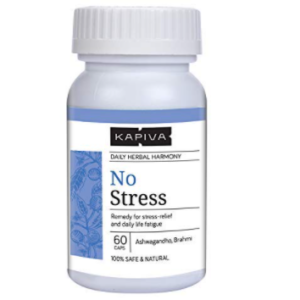Incorporating vegetables into your daily diet is a cornerstone of good health. These vibrant, nutrient-dense foods are packed with essential vitamins, minerals, and antioxidants that support overall well-being. Whether you’re aiming to boost your immune system, improve heart health, or maintain a healthy weight, vegetables play a crucial role. This blog will explore the myriad benefits of vegetables, highlighting why they should be a staple in your diet.
The Nutrient Powerhouse: Vitamins and Minerals
Vegetables are a rich source of vital vitamins and minerals that our bodies need to function properly. Here are some key nutrients found in various vegetables:
- Vitamin A: Essential for good vision, immune function, and skin health. Carrots, sweet potatoes, and leafy greens are excellent sources.
- Vitamin C: Boosts the immune system, helps in the absorption of iron, and promotes healthy skin. Bell peppers, broccoli, and Brussels sprouts are high in Vitamin C.
- Vitamin K: Important for blood clotting and bone health. Kale, spinach, and Brussels sprouts are rich in this vitamin.
- Folate (Vitamin B9): Crucial for cell division and DNA synthesis, making it vital for pregnant women. Leafy greens, asparagus, and Brussels sprouts are top sources.
- Potassium: Helps regulate fluid balance, muscle contractions, and nerve signals. Bananas are famous for potassium, but sweet potatoes, beet greens, and spinach are also excellent sources.
- Iron: Necessary for producing hemoglobin, which carries oxygen in the blood. Spinach, lentils, and chickpeas are rich in iron.
Antioxidants: The Body’s Defense Mechanism
Vegetables are abundant in antioxidants, which protect your cells from damage caused by free radicals. Free radicals are unstable molecules that can cause oxidative stress, leading to chronic diseases like cancer, heart disease, and Alzheimer’s. Some of the best antioxidant-rich vegetables include:
- Tomatoes: Rich in lycopene, which is linked to reduced risk of certain cancers.
- Broccoli: Contains sulforaphane, a compound with potential anti-cancer properties.
- Spinach: High in beta-carotene and lutein, both of which promote eye health.
Fiber: The Digestive Health Hero
Dietary fiber, found abundantly in vegetables, is crucial for maintaining a healthy digestive system. It helps in:
- Promoting Regular Bowel Movements: Fiber adds bulk to the stool, making it easier to pass.
- Maintaining Healthy Weight: High-fiber foods are more filling, which can help control appetite and reduce overall calorie intake.
- Lowering Cholesterol Levels: Fiber can help reduce levels of LDL (bad) cholesterol.
- Stabilizing Blood Sugar Levels: Helps prevent spikes in blood sugar by slowing the absorption of sugar.
Vegetables for Heart Health
Including vegetables in your diet can significantly reduce the risk of cardiovascular diseases. They help by:
- Lowering Blood Pressure: The potassium in vegetables helps balance out the negative effects of sodium.
- Reducing Inflammation: Antioxidants and phytochemicals found in vegetables help reduce inflammation, which is a major risk factor for heart disease.
- Improving Blood Vessel Function: Nitrates found in leafy greens like spinach and kale can help improve blood vessel function and reduce blood pressure.
Easy Ways to Incorporate More Vegetables into Your Diet
- Salads: Start your meals with a fresh salad to ensure you’re getting a variety of nutrients.
- Smoothies: Blend vegetables like spinach, kale, or carrots with fruits for a nutrient-packed drink.
- Snacks: Keep cut vegetables like carrots, celery, and bell peppers ready for a quick, healthy snack.
- Soups and Stews: Add a variety of vegetables to your soups and stews for a hearty, nutritious meal.
- Roasting and Grilling: Enhance the flavors of vegetables by roasting or grilling them with your favorite herbs and spices.



